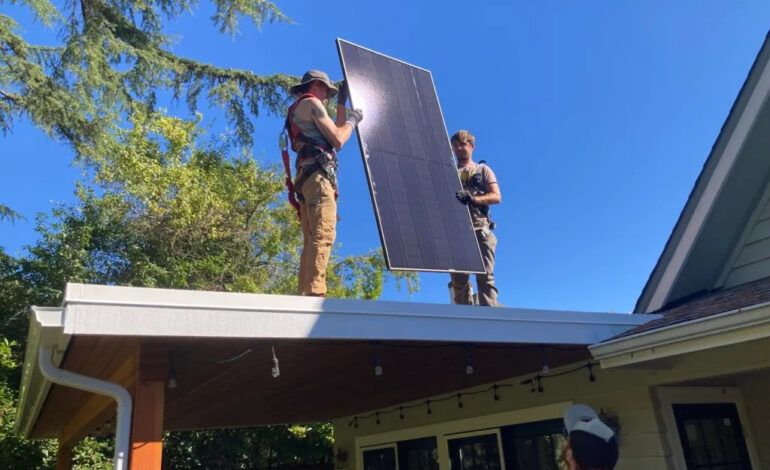19 States Sue Federal Energy Agency Over New Funding Caps

BREAKING: Oregon and 18 other states have just filed a lawsuit against the U.S. Department of Energy, led by Attorney General Dan Rayfield. This urgent legal action aims to challenge new funding caps that threaten critical staff positions in sustainable energy projects nationwide.
The states are up in arms over a new rule that limits “indirect” and “fringe” costs—covering essential expenses like salaries and health benefits—for State Energy Program projects to just 10% of total project costs. Filed in the U.S. District Court in Eugene, Oregon, the lawsuit argues that this arbitrary cap could lead to significant job losses and project terminations, jeopardizing vital energy initiatives.
Rayfield emphasized the stakes for Oregonians, stating, “We can’t meet Oregon’s energy needs if the federal government pulls critical infrastructure that supports the people and expertise behind this work midstream.” With $786,000 in federal grants last year, Oregon relied heavily on these funds to support renewable energy projects and energy efficiency programs.
Other states joining this urgent action include California, Colorado, Connecticut, Delaware, Hawaii, Illinois, Maine, Maryland, Michigan, Minnesota, Nevada, New Mexico, New York, North Carolina, Washington, Wisconsin, along with Kentucky and Pennsylvania governors. The broad coalition underscores the widespread discontent with federal funding policies.
Colorado’s energy agency, for example, risks losing $367,000 in expected funding, which would necessitate staffing cuts. Minnesota faces a potential loss of $290,000, while Kentucky could lose $230,000, impacting local energy efficiency programs and support for electric cooperatives.
The lawsuit highlights a rising trend where federal agencies are imposing caps on overhead costs for various projects, a practice that has faced legal pushback in the past. Officials from the U.S. Department of Energy have yet to respond to these serious allegations.
As this story develops, the implications are clear: the future of sustainable energy projects, crucial for reducing emissions and enhancing energy efficiency, hangs in the balance. Stakeholders are urged to monitor the situation closely as states advocate for the resources necessary to meet their energy objectives.
Stay tuned for updates on this critical issue that could reshape the landscape of sustainable energy funding across the country.






